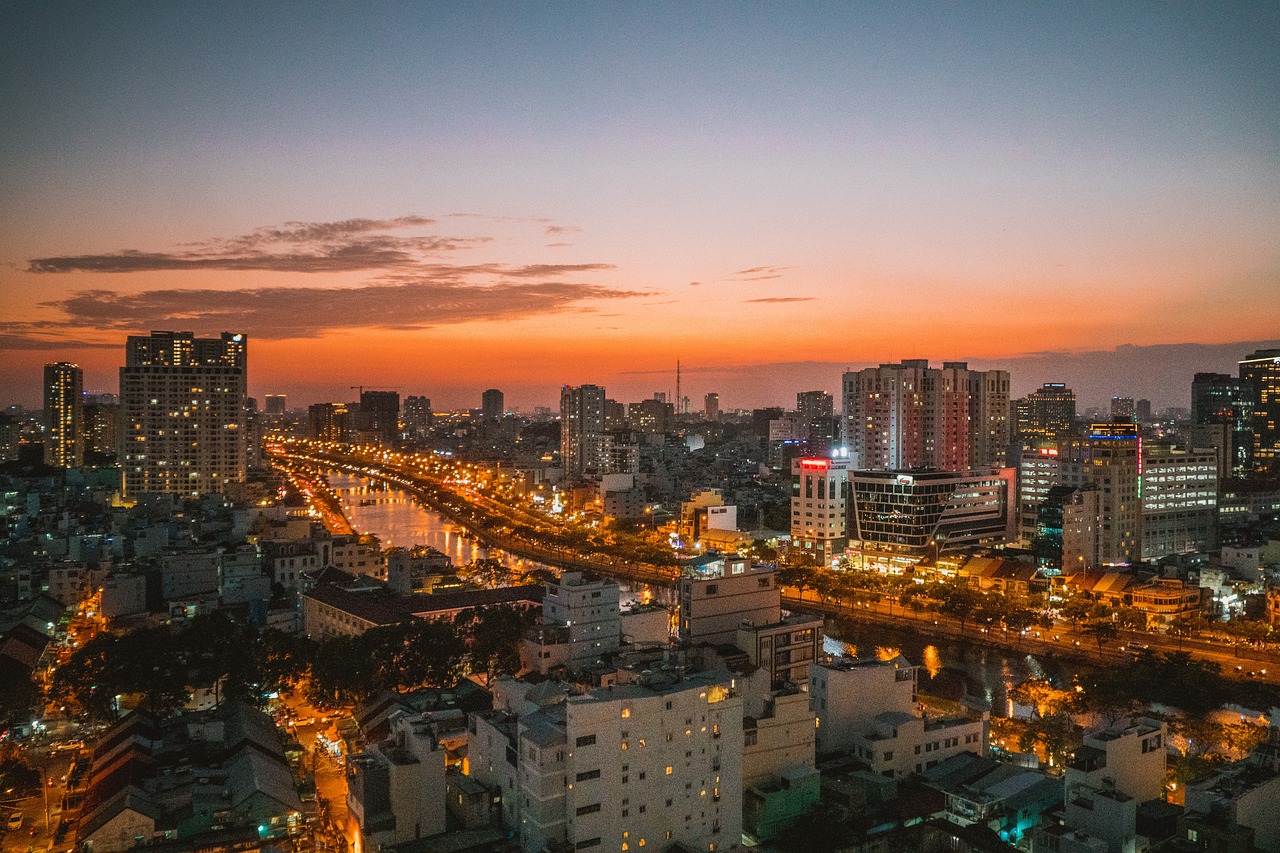Vietnam Video
Insider Tips: Avoiding Tourist Traps in Vietnam
Vietnam is a beautiful country that offers a rich cultural heritage, stunning landscapes, and delicious cuisine. However, like any popular tourist destination, it also has its fair share of tourist traps. To help you make the most of your trip, here are some insider tips to avoid falling into these traps and have an authentic experience in Vietnam.
Understanding Currency Exchange
1. Research the Exchange Rates: Before exchanging your currency, research the current exchange rates to ensure you get a fair deal. Avoid exchanging money at airports or tourist areas as they often offer unfavorable rates.
2. Use Reliable Currency Exchange Services: Look for reputable banks or authorized exchange offices to ensure you receive accurate rates and avoid scams. Be cautious of street money changers who may offer attractive rates but end up giving counterfeit bills.
3. Carry Sufficient Cash: While credit cards are widely accepted in major cities, it’s advisable to carry enough cash, especially when traveling to rural areas or small towns where ATMs might be scarce.
Transportation Tips
1. Avoid Unlicensed Taxis: Be wary of unlicensed taxis as they may overcharge or take longer routes. Stick to reputable taxi companies or use ride-hailing services like Grab or GoViet for a reliable and transparent experience.
2. Negotiate Prices for Cyclos and Motorbike Taxis: When using cyclos or motorbike taxis, negotiate the price upfront to avoid any surprises. It’s also a good idea to agree on the destination and route before starting your journey.
3. Use Public Transportation: Vietnam has an extensive network of buses and trains that are not only cost-effective but also provide an opportunity to interact with locals. Research the routes and schedules beforehand to make your journey hassle-free.
Choosing Accommodation Wisely
1. Read Reviews: Before booking accommodation, read reviews on reliable platforms like TripAdvisor or Booking.com to get an idea of the quality and reliability of the property.
2. Avoid Prepayment for Unverified Accommodation: Be cautious when booking accommodation that requires prepayment through unofficial channels. Stick to reputable booking websites or directly contact the hotel to ensure your reservation is secure.
3. Consider Homestays or Guesthouses: To experience Vietnamese hospitality and immerse yourself in the local culture, consider staying at homestays or guesthouses. These accommodations often provide a more authentic and personalized experience compared to larger hotels.
Eating Out: Street Food Delights
1. Follow the Crowds: When it comes to street food, follow the locals. If a street food stall or cart is bustling with customers, it’s usually a good sign of delicious and safe food.
2. Observe Hygiene Practices: Look for vendors who practice good hygiene, such as wearing gloves or using tongs to handle food. Also, ensure that the food is cooked fresh and served hot.
3. Try Local Specialties: Vietnam is known for its diverse and flavorful cuisine. Don’t miss out on trying local specialties like pho, banh mi, or fresh spring rolls. Be adventurous and explore the culinary delights Vietnam has to offer.
Exploring Local Markets
1. Bargain with Confidence: Bargaining is a common practice in Vietnamese markets. However, be respectful and maintain a friendly attitude while negotiating for a fair price.
2. Shop Around: Don’t settle for the first shop you encounter. Take your time to explore different stalls and compare prices before making a purchase.
3. Be Aware of Counterfeit Goods: Be cautious when buying branded products at low prices, as they may be counterfeit. Stick to reputable stores or authorized retailers to ensure the authenticity of your purchases.
Visiting Popular Tourist Attractions
1. Plan Your Visits Strategically: To avoid crowds, plan your visits to popular tourist attractions during non-peak hours or consider visiting them on weekdays.
2. Hire Local Guides: Hiring a local guide can enhance your experience and provide valuable insights into the history and culture of the attractions. They can also help you navigate through the crowds and avoid tourist traps.
3. Explore Off-the-Beaten-Path Destinations: Vietnam is full of hidden gems that are less crowded and offer a more authentic experience. Research and explore off-the-beaten-path destinations to discover the true beauty of the country.
Respecting Local Customs and Etiquette
1. Dress Respectfully: When visiting temples or pagodas, dress modestly and cover your shoulders and knees as a sign of respect.
2. Learn Basic Vietnamese Phrases: Learning a few basic Vietnamese phrases like greetings and thank you can go a long way in showing respect to the locals.
3. Follow Local Customs: Observe and respect local customs and traditions. For example, taking off your shoes before entering someone’s home or not pointing with your finger are considered polite gestures.
Staying Safe and Secure
1. Be Vigilant with Valuables: Keep your belongings secure and be cautious of pickpockets, especially in crowded areas. Consider using a money belt or keeping important documents in a hotel safe.
2. Stay Aware of Scams: Be aware of common scams like overcharging, fake tour packages, or fake police officers. Trust your instincts and research reputable tour operators before booking any tours.
3. Register with Your Embassy: It’s always a good idea to register with your embassy or consulate when traveling to a foreign country. They can provide assistance in case of emergencies or unexpected situations.
Conclusion
By following these insider tips, you can navigate Vietnam with confidence and avoid falling into tourist traps. Remember to stay open-minded, embrace the local culture, and enjoy the authentic experiences that Vietnam has to offer.
Vietnam Image 1:

Understanding Currency Exchange
- Research the Exchange Rates: Research the current exchange rates to ensure you get a fair deal.
- Use Reliable Currency Exchange Services: Look for reputable banks or authorized exchange offices.
- Carry Sufficient Cash: Carry enough cash, especially when traveling to rural areas or small towns.
Before exchanging your currency, it’s essential to research the current exchange rates to ensure you get a fair deal. Various websites and currency exchange apps provide up-to-date rates for reference. This research will help you understand the approximate amount of Vietnamese dong you should receive for your currency.
When exchanging your money, it’s crucial to use reliable currency exchange services. Reputable banks or authorized exchange offices are the best options as they offer accurate rates and trustworthy service. Avoid exchanging money at airports or tourist areas as they often provide unfavorable rates.
While credit cards are widely accepted in major cities, it’s advisable to carry enough cash, especially when traveling to rural areas or small towns where ATMs might be scarce. Having sufficient cash ensures you can easily make payments and avoid any inconvenience.
Transportation Tips
- Avoid Unlicensed Taxis: Be wary of unlicensed taxis.
- Negotiate Prices for Cyclos and Motorbike Taxis: Negotiate the price upfront.
- Use Public Transportation: Vietnam has an extensive network of buses and trains.
When using taxis in Vietnam, it’s important to be cautious of unlicensed taxis. These taxis may overcharge or take longer routes to increase the fare. To avoid such situations, it’s recommended to stick to reputable taxi companies or use ride-hailing services like Grab or GoViet, which provide reliable and transparent experiences.
When using cyclos or motorbike taxis, it’s common to negotiate the price upfront. Agree on the fare before starting your journey to avoid any surprises or disputes later. It’s also advisable to agree on the destination and route to ensure a smooth and hassle-free ride.
Vietnam has an extensive network of buses and trains that provide cost-effective transportation options. Using public transportation not only saves you money but also offers an opportunity to interact with locals and experience the local way of life. Before using public transportation, research the routes and schedules to plan your journey effectively.
Vietnam Image 2:

Choosing Accommodation Wisely
- Read Reviews: Before booking accommodation, read reviews on reliable platforms.
- Avoid Prepayment for Unverified Accommodation: Be cautious when booking accommodation that requires prepayment through unofficial channels.
- Consider Homestays or Guesthouses: To experience Vietnamese hospitality and immerse yourself in the local culture, consider staying at homestays or guesthouses.
Before booking accommodation in Vietnam, it’s important to read reviews on reliable platforms like TripAdvisor or Booking.com. These platforms provide insights into the quality, cleanliness, and reliability of different properties, helping you make an informed decision.
When booking accommodation, especially through online platforms, be cautious of prepayment requirements through unofficial channels. Stick to reputable booking websites or directly contact the hotel to ensure your reservation is secure and avoid any potential scams.
For a more authentic and personalized experience, consider staying at homestays or guesthouses in Vietnam. These accommodations are often run by locals and provide a unique opportunity to experience Vietnamese hospitality, learn about local customs, and interact with the host family.
Eating Out: Street Food Delights
- Follow the Crowds: When it comes to street food, follow the locals.
- Observe Hygiene Practices: Look for vendors who practice good hygiene.
- Try Local Specialties: Don’t miss out on trying local specialties.
One of the best ways to find delicious and safe street food in Vietnam is to follow the locals. If a street food stall or cart is bustling with customers, it’s usually a good sign of tasty and hygienic food. Trust the locals’ choices and join the queue for an authentic culinary experience.
While exploring street food options, it’s essential to observe the hygiene practices of the vendors. Look for vendors who wear gloves or use tongs to handle food. Additionally, ensure that the food is cooked fresh and served hot to minimize the risk of foodborne illnesses.
Vietnam is renowned for its diverse and flavorful cuisine. Don’t miss the opportunity to try local specialties like pho (noodle soup), banh mi (Vietnamese sandwich), or fresh spring rolls. Be adventurous and explore the vibrant street food scene to savor the authentic flavors of Vietnam.
Vietnam Image 3:

Exploring Local Markets
- Bargain with Confidence: Bargaining is a common practice in Vietnamese markets.
- Shop Around: Don’t settle for the first shop you encounter.
- Be Aware of Counterfeit Goods: Be cautious when buying branded products at low prices.
When shopping at local markets in Vietnam, bargaining is a common practice. However, it’s important to bargain with respect and maintain a friendly attitude. Approach the process with confidence, and don’t be afraid to negotiate for a fair price.
Vietnamese markets are known for their variety of products and prices. To ensure you get the best deal, take your time to explore different stalls and compare prices. This way, you can make an informed decision and potentially save some money.
While shopping at markets, be cautious when buying branded products at significantly lower prices. Counterfeit goods are prevalent in some markets, and it’s important to exercise caution. Stick to reputable stores or authorized retailers to ensure the authenticity of your purchases.
Visiting Popular Tourist Attractions
- Plan Your Visits Strategically: To avoid crowds, plan your visits to popular tourist attractions during non-peak hours.
- Hire Local Guides: Hiring a local guide can enhance your experience and provide valuable insights.
- Explore Off-the-Beaten-Path Destinations: Vietnam is full of hidden gems.
Popular tourist attractions in Vietnam can get crowded, especially during peak hours. To have a more enjoyable experience, plan your visits during non-peak hours or consider visiting on weekdays when there are fewer tourists. This way, you can explore the attractions at your own pace.
When visiting popular tourist attractions, hiring a local guide can enhance your experience. Local guides have in-depth knowledge about the history, culture, and significance of the attractions. They can help you navigate through the crowds, provide interesting anecdotes, and ensure you make the most of your visit.
While popular tourist attractions are worth visiting, Vietnam also has numerous off-the-beaten-path destinations waiting to be explored. Research and venture into lesser-known places to discover the true beauty of the country. These hidden gems often offer a more authentic and less crowded experience.
Respecting Local Customs and Etiquette
- Dress Respectfully: Dress modestly when visiting temples or pagodas.
- Learn Basic Vietnamese Phrases: Learn a few basic Vietnamese phrases.
- Follow Local Customs: Observe and respect local customs and traditions.
When visiting religious sites like temples or pagodas, it’s important to dress respectfully. Cover your shoulders and knees as a sign of respect to the local customs and traditions. Carrying a shawl or scarf can be helpful in case you need to cover up.
Learning a few basic Vietnamese phrases can go a long way in showing respect to the locals. Simple greetings like “Xin chào” (hello) and “Cảm ơn” (thank you) can help break the ice and create a positive interaction with the locals.
While in Vietnam, it’s important to observe and respect local customs and traditions. For example, taking off your shoes before entering someone’s home or not pointing with your finger are considered polite gestures. Being mindful of these customs shows your respect for the local culture.
Staying Safe and Secure
- Be Vigilant with Valuables: Keep your belongings secure and be cautious of pickpockets.
- Stay Aware of Scams: Be aware of common scams and research reputable tour operators.
- Register with Your Embassy: Register with your embassy or consulate.
When exploring crowded areas or tourist attractions, it’s important to be vigilant with your valuables. Keep your belongings secure, use a money belt, or consider leaving important documents in a hotel safe. Be cautious of pickpockets and avoid displaying expensive items openly.
Scams targeting tourists can occur in any destination, and Vietnam is no exception. Be aware of common scams like overcharging, fake tour packages, or individuals posing as police officers. Research reputable tour operators before booking any tours to ensure a safe and reliable experience.
Before traveling to Vietnam, it’s advisable to register with your embassy or consulate. This allows them to provide assistance and support in case of emergencies or unexpected situations. It’s a precautionary measure to ensure your safety and well-being during your stay.
References
- TripAdvisor: www.tripadvisor.com
- Booking.com: www.booking.com
- Grab: www.grab.com
- GoViet: www.go-viet.com


